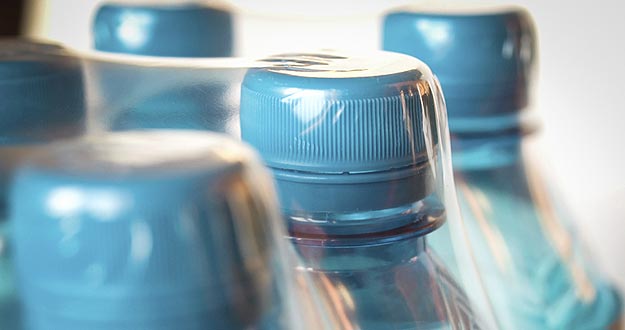Until yesterday, I thought that the material, with wich plastic bottles are made, was harmful to health. One day, someone told me that the "Pet" (a derivative of petroleum), which is in plastic bottles, breaks off and enters the water, every time we wring a plastic bottle. But, yesterday, I read a news, that said plastic bottles, containing mineral water, are not harmful to health.

An analysis of more than 130 kinds of mineral waters, by researchers at the Institute of Environmental Assessment and Water Research, in the CSIC, has determined that bottled water, sold in Spain, are virtually free of the compounds emitted by plastic or sheets, that cover glass bottles.
The study, published in the journal Food Chemistry, indicates that these compounds were only detected in some cases, but in amounts far below harmful limits for health, as recorded by Sync.
The researchers analyzed 131 mineral water springs and three drinking water, prepared in 94 brands marketed, in Spain.
They took samples, just after bottling in the plants packaging and storage after one year, to assess whether there had been migration of plastic components or additives, during that time.
"The findings indicate that such, both containers, made of plastic or glass, as packaged waters, are completely safe for health and comply with current legislation", says the study's lead author and a researcher at “Idaea-CSIC”, Silvia Lacorte.
The plastic materials, used for packaging foods, are constituted by small molecules or monomers, which together with their additives, can migrate to the product, during the manufacturing process of the packaging, filling or storage.
Scientists, from Idaea-CSIC and the Oliver Rodes Laboratory, have focused on those compounds, that can be transmitted, from plastic or glass bottles, to water. Specifically, they have analyzed five types of phthalates --esters ftálico acid, dietilhexiladipato (DEHA), octylphenol, nonylphenol and bisphenol A (BPA)--.
These substances are common in the manufacture of packaging, but they may have toxic effects on the reproductive organs and the endocrine system, if they exceed the limits of the legislation on plastic materials, in contact with food.
From a total of 6,516 values, only 5.6% gave positive results. The compounds, that appeared most frequently, are DEHP or di (2-ethylhexyl) phthalate, related crown cap glass containers, and the BPA, associated with containers polycarbonate, a type of moldable thermoplastic, customary in the industry.
But concentrations are negligible and are well below the maximum total daily intake or TDI.
For example, in the case of DEHP, you would have to drink 231 liters of water, in a day, to reach the limit, set by the legislation (0.05 mg / kg bw / day) or 124 liters, if it was the BPA.
"Keeping in mind the concentration of the compounds and the daily consumption of bottled water, the possibility of developing health problems, due to their intake, is nonexistent", insists Lacorte.
The researcher says that the results "may be useful for packers and distributors of caps and resins, which are continuously improving their products, to limit the migration of packaging and keep intact the characteristics of the spring water".
"The migration of components sometimes causes a sensory problem, rather than toxicity, so that the first bottling companies are interested in using plastics, that do not dislike the taste of the consumer", it has been explained by the researcher.
The analyzes also reveal that plastic bottles, polyethylene terephthalate (PET), with cap high density polyethylene, which represent most of the water containers in the Spanish market, have he analyzes also reveal that the plastic bottles, polyethylene terephthalate (PET) with cap high density polyethylene, which represent most of the water containers Spanish market, means a very low incidence of plasticizers.
Furthermore, it has been noted that the format of the container does not affect the water quality. Neither the storage period, since the compounds, detected in freshly packaged samples, were essentially the same as after a year in storage.
It has only been found that the presence of gas, in the water, can slightly enhance migration processes, which, generally, are related to the type of monomer or plastic material, used to manufacture the packaging.
“Bottled water has often been attacked, on the issue of migration of plasticizers; but, really, it barely occurs; and, if an incident occurs, we now know why, so we can improve the packaging", says Lacorte, who reminds: "In Spain, it may seem a luxury to drink bottled water; but, in many countries, it is a necessity, because there is no tap; and, in all cases, it must be safe and of quality".
Well, I do not know if you knew this news before. I did not it and I have been surprised.
Till very soon, kind regards,
Luis.
Sponsored by Costaluz Lawyers.
Please click here below:
